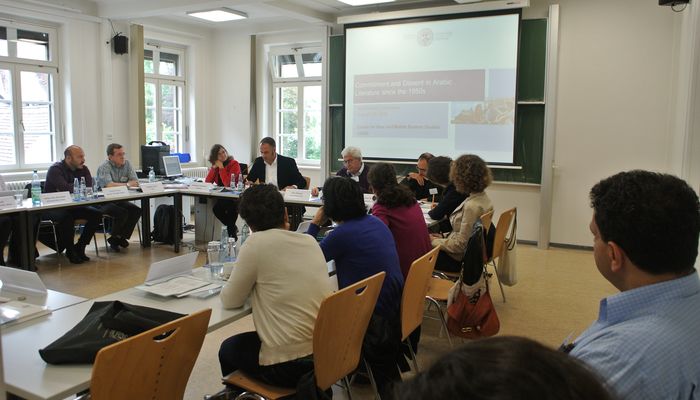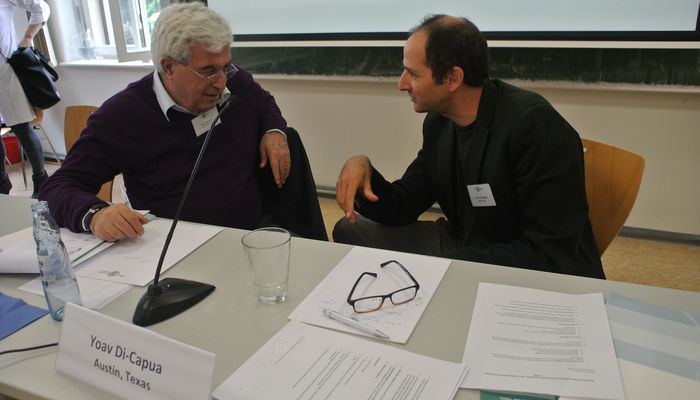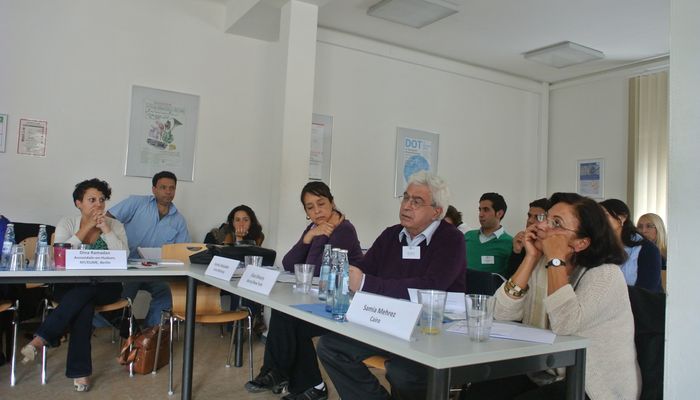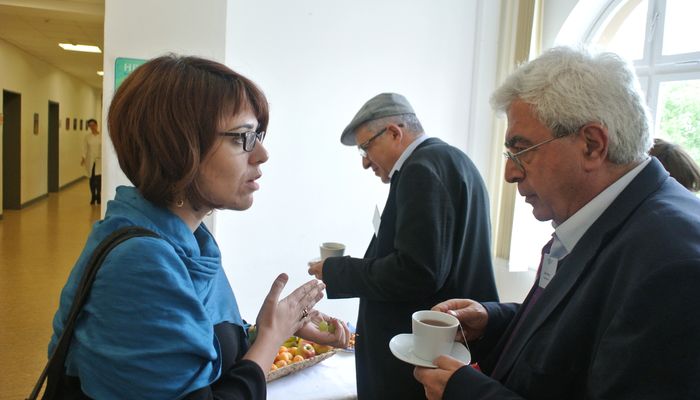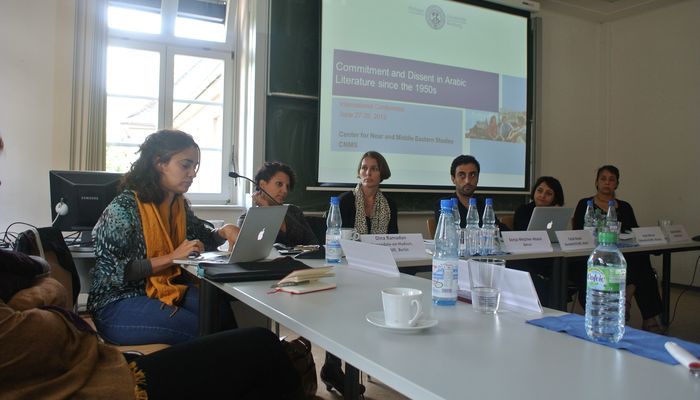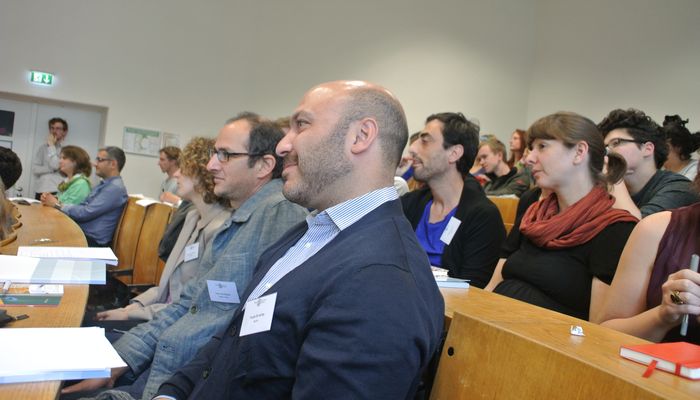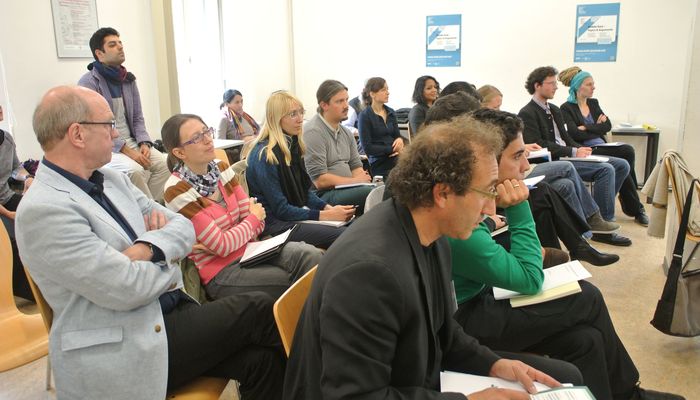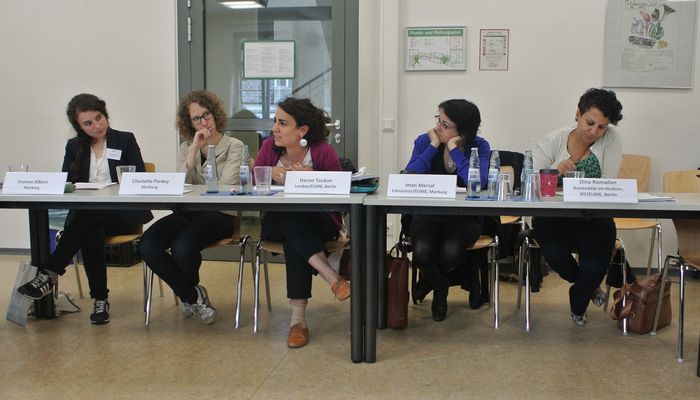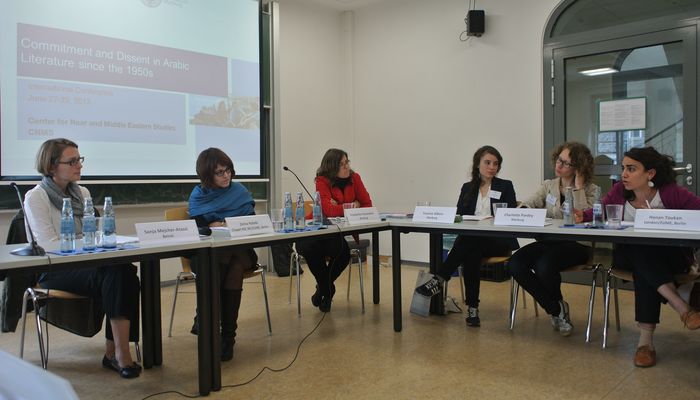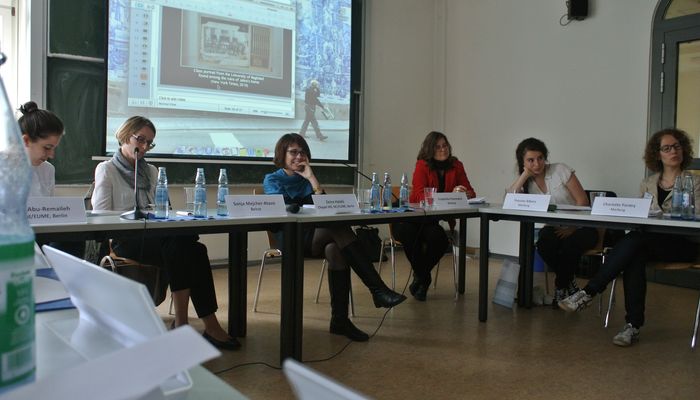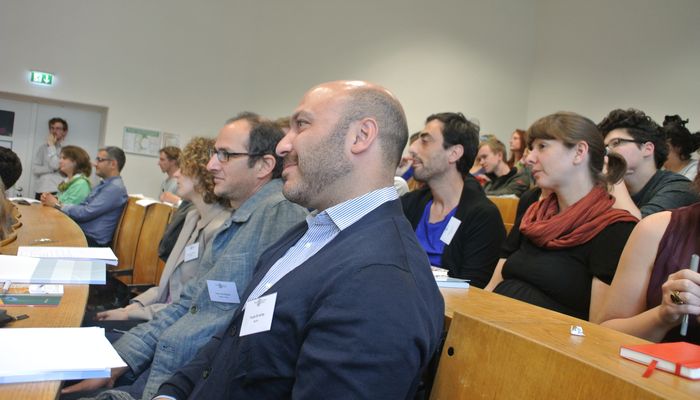Commitment and Dissent in Arabic Literature since the 1950s
In cooperation with the Center for Near and Middle Eastern Studies (CNMS) of the Philipps University in Marburg
Centrum für Nah- und Mittelost-Studien (CNMS), Deutschhausstraße 12, 35032 Marburg
The ongoing popular uprisings in the Middle East and North Africa have challenged traditional paradigms for understanding politics and culture of the region and have therefore raised a new set of questions. Societies, in particular youths and young adults, have overcome a barrier of fear, engaging in protests and enduring long occupations of symbolic places to express their longing for a better life and imagination of new utopias. 'Revolution', as both a theoretical concept and a concrete practice, has facilitated the emergence of innovative modes of critique as well as reshaping individual subjectivities and communal solidarities.
At the same time however, we need to recognise that discourses of dissent and counter-narratives have in fact been a crucial issue in Arabic literature ever since the appropriation of Jean Paul Sartre’s concept of “littérature engagée” in the highly politicized period of the 1950s. Translated as iltizām (engagement/commitment), the idea of the politically and socially engaged author as spokesperson of nations, political parties or ideologies became the all embracing concept in the discourse of Arabic literary criticism in the mid-20th century. Commitment in this context did not necessarily mean solely dissent; it was also employed to cover affirmative positions vis-à-vis hegemonic discourses and leading political doctrines. While colloquial poetry remained almost consistently “engaged poetry”, in Arabic novels after the June War of 1967 and the end of Nasserism, a period of disorientation and self-doubt followed which called into question the idea of literature’s explicitly political position and ideological partisanship.
Arabic literature of the 1990s is regarded as being characterized by a questioning of literary realism: guided by a general mistrust in modes of representation and an interest in minority perspectives, strategies of fragmentarization and deconstruction emerged, and today these are defined in terms of a postmodernist shift. Consequently, political commitment openly displayed in and through literature was rejected at the time. In turn however, developments in Arabic literature of the early 2000s reveal a new understanding of the role of literature in society. Critics disagree about how to label best-selling novels like The Ya’qoubian Building (2002), Taxi (2007) or The Girls of Riyadh (2005) and comprehend the new characteristics and overwhelming popularity of such phenomena, both in the Arab world and the global book market in general, e.g. referring variously to such works as kifaya-literature (Junge), post-postmodern literature (Guth) or fictions of scandal (El Ariss).
In an effort to come to terms with literature’s changing political role throughout recent modern history, this workshop deals with notions of political agency, dissent and opposition in Arabic literature since the mid-20th century. A central question is: what did it mean to be political in the heyday of political ideologies and literary engagement during the 1950s and early 1960s, and how does this compare to the political dimension in both the postmodern approaches and the recent revolutionary contexts?
The conference was a follow-up of the workshop 'The Middle East from Below – Dynamics of Subversion' hosted at Marburg University in December 2011 and the Summer Academy 'Aesthetics and Politics' held in copperation with the AUC in September 2012 in Cairo.
Schedule:
Thursday, June 27: Keynote
6 pm
Samia Mehrez (American University in Cairo)
The Making of a Revolutionary Culture
Chair: Friederike Pannewick (CNMS)
Please find the video recording of the keynote here.
Friday, June 28: Workshop
9 am – 9.30 am
Introduction Friederike Pannewick (CNMS)
9.30 am – 12.00
Panel: Conceptual History of Literary Engagement
Elias Khoury (Beirut; New York University), Beyond Commitment
Yoav Di-Capua (University of Texas at Austin), Between Existentialism and Socialist-Realism: The Intellectual Revolt of the 1950s
Chair: Georges Khalil (Forum Transregionale Studien, EUME)
1.30 pm – 5.30 pm
Panel: Manifestations of Commitment
Sonja Mejcher-Atassi (American University of Beirut), Political Commitment in Munif and Jabra: From Political Activism to Leaving Traces, Recollecting Presence, and Aesthetic Contemplation
Refqa Abu-Remaileh (University of Oxford; EUME Fellow 2012-13), Post-Committment Resistance: A look at Ghassan Kanafani and Emile Habibi
Zeina Halabi (University of North Carolina, Chapel Hill; EUME Fellow 2012-13), From Exile to Asylum: In Search for Iltizam in Contemporary Arabic Literature
Chair: Friederike Pannewick (CNMS)
Saturday, June 29: Workshop
9 am – 12.30
Panel: Postmodernity and Beyond
Stephan Guth (University of Oslo), Avatar and ‘Azazīl – Western and Middle Eastern Patterns of Individual Revolt. An Essay in the Simultaneity of Ruptures
Tarek el-Ariss (University of Texas at Austin; EUME Fellow 2012-13), Ghazali, Shidyaq, Said: Towards a New Genealogy of Dissent
Christian Junge (Friedrich Schlegel Graduiertenschule für literaturwissenschaftliche Studien, Berlin), Emotion and Criticism - The Kifaya-Rhetoric in pre-revolutionary Egyptian Literature
Chair: Charlotte Pardey (CNMS)
2 pm – 4.30 pm
Panel: Interdisciplinary Round Table
Locating the Political in Art and Literature
Discussants:
Randa Abu Bakr (Cairo University; Visiting Scholar at CNMS)
Yazid Anani (Birzeit University, Ramallah; EUME Fellow 2012-13)
Sonja Mejcher-Atassi (American University of Beirut)
Iman Mersal (University of Alberta; EUME Fellow 2012-13)
Dina Ramadan (Bard College, Annandale-on-Hudson)
Chair: Yvone Albers (CNMS), Hanan Toukan (School of Oriental and African Studies, University of London; EUME Fellow 2012-13)
Screening
Samia Mehrez "The Making of Revolutionary Culture" (Video English)
The Lecture on "The Making of Revolutionary Culture" by Samia Mehrez took place on 27 June 2013 in the fram,ework of the EUME-CNMS Workshop »Commitment and Dissent in Arabic Literature since the 1950s« (27 - 29 June, Center for Near and Middle Eastern Studies, Philipps-Universität Marburg).

